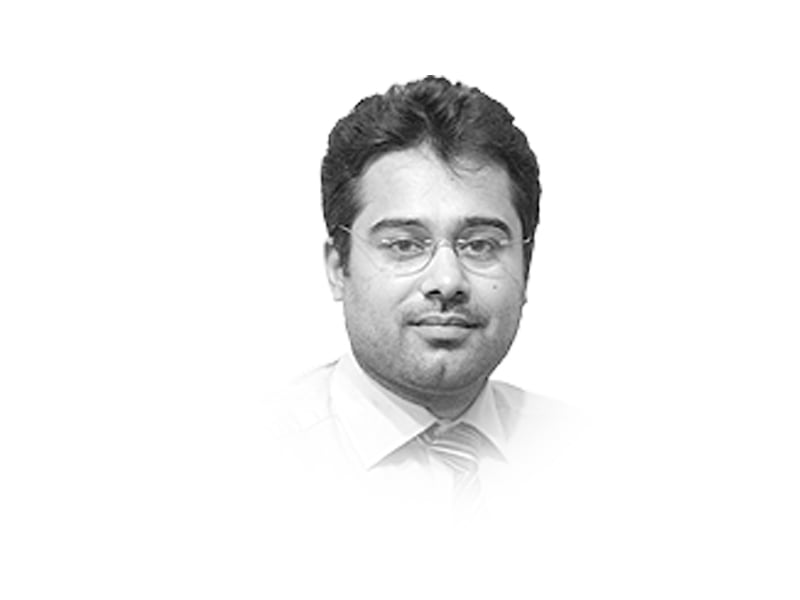
Our present intellectual culture, as well as the political and institutional set-up for learning, needs much change. We must realise that innovation from individuals, teams and nations results from not only thinking and doing better than before, but from thinking and doing different than before. There are particular assumptions and practices which discourage critical thinking among the youth and hampers their potential for innovation and growth. What exists in an academic text seems to have unquestionable status in the classroom and is considered non-debatable. There is no exploration of what we read and the youth is generally not taught or encouraged to question and challenge what they come across in prescribed textbooks. Those fortunate enough to have been taught to do so belong to expensive, elite institutions.
Many young students hesitate and avoid speaking their mind or views in group environments. This is not entirely out of fear of how their peers might perceive them (a natural human tendency), but more due to the fear of how aggressively the teacher might react in response. If students are seen to disturb the flow and timeframe allocated to dissemination, they are thought to be wasting precious time and creating unnecessary disturbance. Hence, speaking out is discouraged. But being able to speak and express one-self is an essential development practice that has wonders to play for the critical thinking skills and self-confidence of youth.
Those who teach in classroom environments certainly possess superior knowledge in the area of instruction than those sitting before them and therefore, have been appointed to a position of disseminating that superior knowledge. However, it would only be humble for us all to admit that the spirit and profession of teaching is one in which you, yourself, are constantly learning and growing. But given our social set-up, it is deemed incompetent for teachers to admit to this human fact since the cultural norms imply that teachers must already possess all the knowledge there could be. And so, it is considered inappropriate and out of context to question or disagree with a teacher — because doing so would mean doubting or challenging his/her supremacy in the domain of knowledge. For classrooms to become environments that induce learning, this pseudo-natural ideology must be overcome. Students and teachers must bridge learning gaps by making it acceptable for students to question or disagree constructively and respectfully with those who deliver knowledge: their teachers.
The typical question that always arises few days before semester exams is, “Will the exam comprise only of what we have read in the book?” The question really ought to be: “Will the exam comprise of what we have learned from the book?” Students are usually on the lookout for quick learning for a solution in order to pass exam assessments and are least concerned about learning for knowledge. Our education system is at fault here, since it evaluates the quality of learning through assessment designs and systems that are based on quantity rather than quality. Furthermore, students are interested in and dedicated to reciting and recalling under pressured and time constrained environments. Over time, this becomes a habitual practice where they excel only at rote-learning to serve short-term, procedural ends. In this process, what they are not developing is the ability to critically examine syllabus content. The mode of assessment discourages them from doing so. Again, the education system is at fault here because it promotes the design and use of assessment instruments that test students’ ability to recall and reproduce information and concepts rather than critically examine them. This is an outdated practice in education because it is fixated exclusively with pedagogy rather than andragogy.
As students dedicate the majority of their time and effort to remembering and reproducing, they fail to dwell upon concepts and ideas or soak them in thoroughly. Hence, we produce students who are weak at linking their classroom learning to their surroundings. Building the capacity to relate and link ideas and concepts is the only means through which one can connect the dots of the world around us. This is, essentially, the only way through which we come to realise that all knowledge is related. This approach of linking, also, is the well-spring of new knowledge. The absence of this kind of learning in Pakistan also explains why we are so good at producing doctors, traditional engineers and accountants as a nation but behind in producing artists, philosophers, inventors and entrepreneurs.
For us to create the valuable currency of knowledge, it is essential that learning becomes both an art and a science. What is to be learnt must also be questioned and challenged. Hence, positive criticism of curriculum, assessment mode and those who deliver is something we must not refrain but in fact, must encourage. After all, knowledge is that fuzzy mass in our memory which is left behind after all that we have learned has been forgotten.
Published in The Express Tribune, January 23rd, 2015.
Like Opinion & Editorial on Facebook, follow @ETOpEd on Twitter to receive all updates on all our daily pieces.
COMMENTS (8)
Comments are moderated and generally will be posted if they are on-topic and not abusive.
For more information, please see our Comments FAQ







1729685382-0/Untitled-design-(57)1729685382-0-270x192.webp)


1730706072-0/Copy-of-Untitled-(2)1730706072-0-270x192.webp)
Yes, "belong to expensive elite intituitions", where such analysts themselves have been educated, and that too abroad. But same time good points, system at fault. Great article.
Mediocre classes because of incompetent teachers who make the good ones look bad also. National teacher training programs the solution for public schools at primary or secondary levels @ Tausif ?
Writer makes close observations that education planning people should take up. But they lack ability to plan. Potential goes to waste. Right to say we must make people in fields other than doctors or IT, because there is too little jobs now for these type of profession and doctor people earn less than general grocery store owner.
This columnist makes close observation that education planning people should take up. But they lack ability to plan. Potential goes to waste. Right to say we must make people in fields other than doctors or IT, because there is too little jobs now for these type of profession and doctorand IT people earning less than general grocery store owner.
Nice reading.
@ John B
Perfectly complemented. Nice post.
What is discussed here in the context cf class room education pertains to individual thinking or creative thinking which can be summarized as freedom of expression
Artists, philosophers, inventors, scientists, and entrepreneurs come out of free thinking and free expression by questioning the dogma and pushing the envelope further than their peers can. They are the foundation of modern class room.
If a society and its established practices in general cannot allow free thinking and free expression and oppose the view of creating thinking, then one cannot expect that children will mimic the same in the class room.
As humans our creative thinking and free expression started when we begin to ask "where did we come from" : the question persisted until Yesterday in human evolutionary time scale.
If children are taught in a society value that they should not ask question about god and things are blasphemous to read, and see, then they are also taught to suppress their innate curiosity and it perpetuates the problem, since today's student is tomorrows teacher.
Until that changes, no society can produce innovators, scientists, philosophers or artists. The society may produce mimickers of them (those that reproduce the works of creative thinkers of other society) but not paradigm shifters.
Can PAK facilitate free expression of thoughts, speech, culture, religion, art, music outside of its established norms without suffocating the individual, man or woman?
"freedom of expression but within limits" is what PAK has today.
Today's world of the last two centuries is a product of free expression which far surpasses the entire human history. PAK cannot claim the acclaimed works of her citizens done in free society as her own. If any, they illustrate why free expression is paramount.